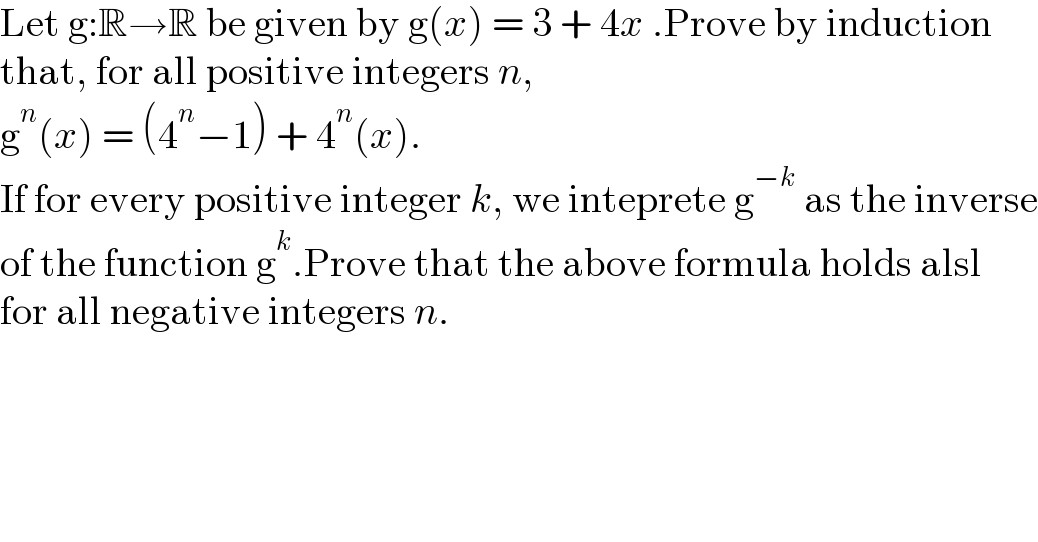Question Number 145641 by physicstutes last updated on 06/Jul/21

$$\mathrm{Let}\:\mathrm{g}:\mathbb{R}\rightarrow\mathbb{R}\:\mathrm{be}\:\mathrm{given}\:\mathrm{by}\:\mathrm{g}\left({x}\right)\:=\:\mathrm{3}\:+\:\mathrm{4}{x}\:.\mathrm{Prove}\:\mathrm{by}\:\mathrm{induction} \\ $$$$\mathrm{that},\:\mathrm{for}\:\mathrm{all}\:\mathrm{positive}\:\mathrm{integers}\:{n},\: \\ $$$$\mathrm{g}^{{n}} \left({x}\right)\:=\:\left(\mathrm{4}^{{n}} −\mathrm{1}\right)\:+\:\mathrm{4}^{{n}} \left({x}\right). \\ $$$$\mathrm{If}\:\mathrm{for}\:\mathrm{every}\:\mathrm{positive}\:\mathrm{integer}\:{k},\:\mathrm{we}\:\mathrm{inteprete}\:\mathrm{g}^{−{k}} \:\mathrm{as}\:\mathrm{the}\:\mathrm{inverse} \\ $$$$\mathrm{of}\:\mathrm{the}\:\mathrm{function}\:\mathrm{g}^{{k}} .\mathrm{Prove}\:\mathrm{that}\:\mathrm{the}\:\mathrm{above}\:\mathrm{formula}\:\mathrm{holds}\:\mathrm{alsl} \\ $$$$\mathrm{for}\:\mathrm{all}\:\mathrm{negative}\:\mathrm{integers}\:{n}. \\ $$
